HOW CAN WE HELP YOU? Call 1-800-TRY-CHOP
In This Section
CHOP Women in STEM Share Advice for Aspiring Scientists
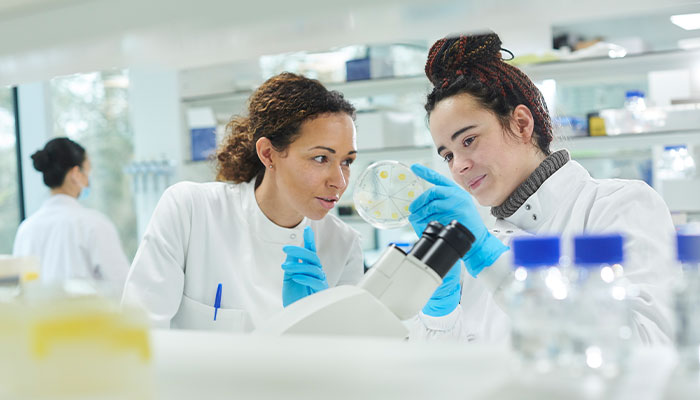
Women in STEM at CHOP are sharing their experiences in the field, current work, and advice for aspiring scientists.
More women have established careers in the science, technology, education, math, and medicine (STEM-M) workforce than ever before. Women's share of the U.S. STEM-M workforce increased 31 percent from 9.4 million to 12.3 million in the span of 10 years, according to a 2023 report released by the National Science Foundation. And while gender equity in STEM still has its gaps, Children's Hospital of Philadelphia Research Institute is a community that's recruiting for change.
In 2021, Chief Scientific Officer and Executive Vice President Susan Furth, MD, PhD, became the first woman in CHOP's 169-year-old history to hold this prestigious title. But representation doesn't stop there: Across our Centers of Emphasis (COE), women are studying the basic science underlying complex diseases, coordinating research programs that impact our communities, identifying opportunities to improve health equity, and more – all while elevating the next generation with their support.
We asked leaders of each COE to nominate one individual who exemplifies excellence as a woman in STEM. Each nominee filmed a short video sharing their advice for aspiring scientists and a description of their work. We wrapped up their advice for the next generation in this blog but invite you to watch the full set of CHOP Women in STEM videos for even more inspiration.
'Find a community of peers.'
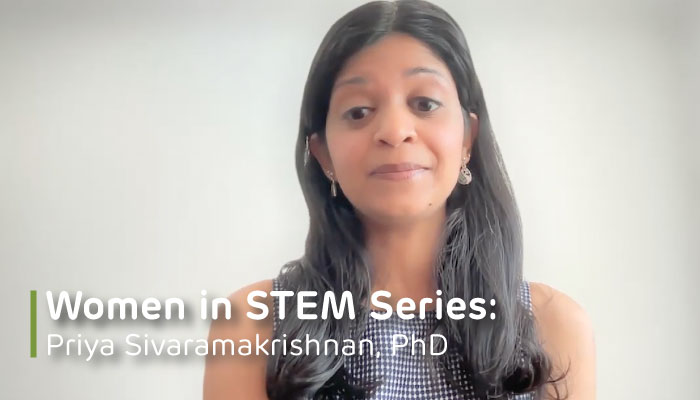
Priya Sivaramakrishnan, PhD
Priya Sivaramakrishnan, PhD
Assistant Professor, Center for Computational and Genomic Medicine
"The secret that no one tells you in science is that problems are not solved by an individual, and you're not expected to know how to do everything by yourself. Especially as a woman of color, it is very easy to fall into that trap. Find a community of peers who will support and guide you. And when it is your turn to help others, try to make the time to do so with kindness and with empathy."
Watch Dr. Sivaramakrishnan's full video.
'Take a hard look at what you're most passionate about.'
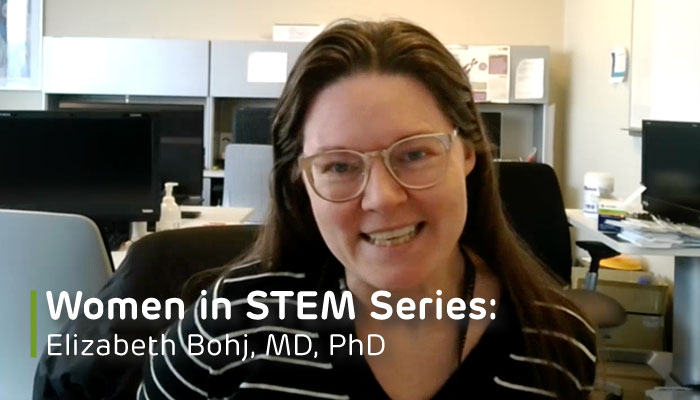
Elizabeth Bhoj, MD, PhD
Elizabeth Bhoj, MD, PhD
Assistant Professor, Center for Cellular and Molecular Genetics
"I think that if I was going to give one piece of advice for women in STEM, it would be to really take a hard look at things that are of biggest interest to you and what you're most passionate about and really focus on those. Sometimes it can be really difficult because we don't always get a lot of messaging from the media saying that it's possible for women to get advanced in their careers in STEM, or we don't see a lot of role models in the general public for women that have leadership roles in STEM, unlike here at CHOP."
Watch Dr. Bhoj's full video.
'Stick with it, and go with your gut.'
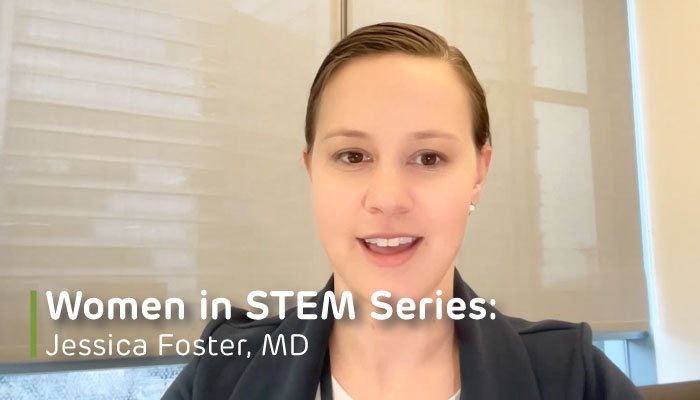
Jessica Foster, MD
Jessica Foster, MD
Assistant Professor, Center for Childhood Cancer Research
"I was fortunate to work with and get to know Kati Kariko, PhD, who just won the Nobel Prize in Medicine and Physiology for her work in mRNA that led to the COVID vaccine. And so, I want to pass on a message that she passed on to me, which is don't let anyone tell you 'no' if you believe in something. If you have the science, and you have the data in front of you, it doesn't matter how many papers get rejected, how many grants get rejected. Stick with it, and go with your gut. And I think that's really important advice and obviously came to full fruition for her."
Watch Dr. Foster's full video.
'Remember your why.'
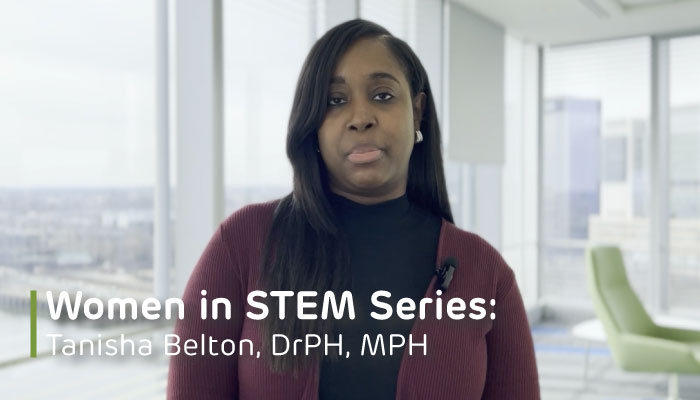
Tanisha Belton, DrPH, MPH
Tanisha Belton, DrPH, MPH
Senior Manager of Research Initiatives, PolicyLab
"My advice to women in STEM is to remember your 'why.' Sometimes things can get challenging, and the road may get tough, but remember to focus back on why you started and how you got here."
Watch Dr. Belton's full video.
'Let's keep working.'
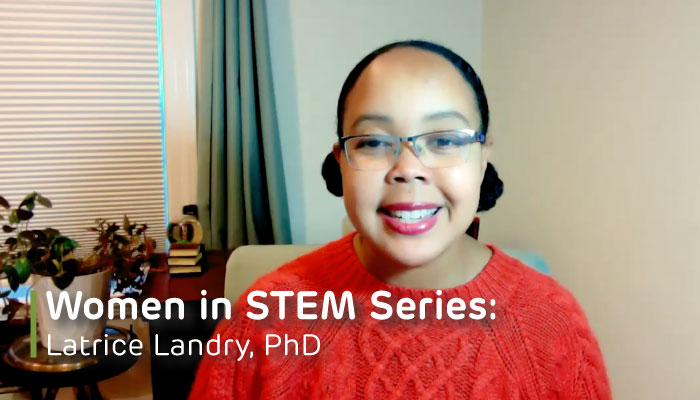
Latrice Landry, PhD
Latrice Landry, PhD
Instructor, Center for Applied Genomics
"Maya Angelou once said, 'nothing works unless you do.' My experience as a woman in STEM suggests we have a lot of work to do. My advice is: let's keep working."
Watch Dr. Landry's full video.
'Don't undervalue those experiences.'
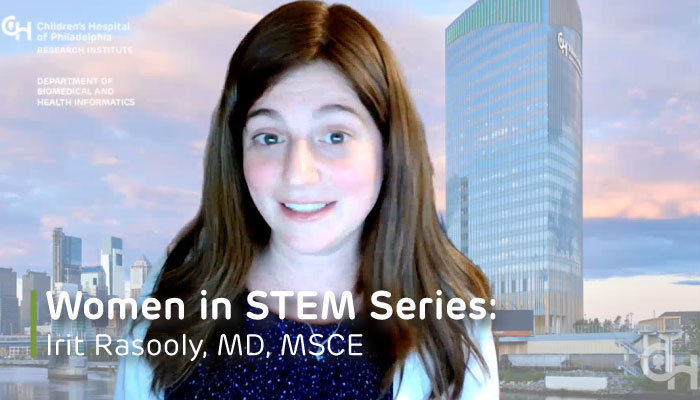
Irit Rasooly, MD
Irit Rasooly, MD
Assistant Professor, Department of Biomedical and Health Informatics
"Remember that all your life experiences make you the researcher, the clinician, the person that you are. Sometimes I hear people describing time off or a gap year. It doesn't strike me as quite right. All the experiences that you have inside and outside work, in medicine as a clinician, in medicine as a patient, caring for children in the hospital, caring for children at home. They make you the researcher that you are. They shape the way you frame and understand questions, the way you analyze results, the collaborative relationships that you form. My advice would be don't undervalue those experiences."
Watch Dr. Rasooly's full video.
'Look for opportunities that invest in you.'
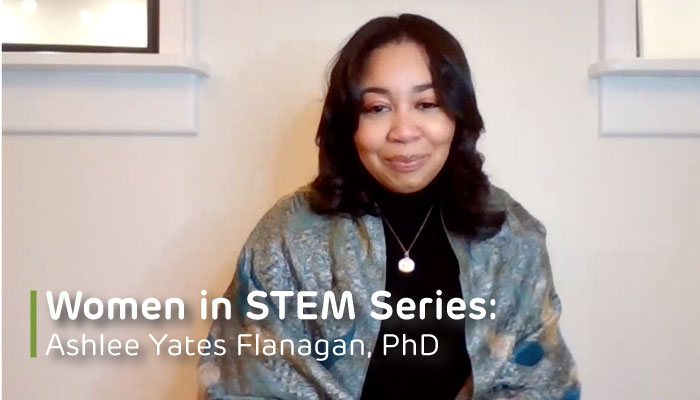
Ashlee Yates Flanagan, PhD
Ashlee Yates Flanagan, PhD
Psychologist and Postdoctoral Fellow, Center for Autism Research
"I would say identify opportunities where you are invested in. Groups, and grants, and awards that want to invest in you or someone like you.
For me specifically at CHOP, I have been honored and so grateful to be awarded an academic fellowship in diversity. This particular award has provided me mentorship opportunities as well as provided an infrastructure where I can pursue my research meaningfully and it is for scholars from diverse backgrounds, and it really helps to diversify the CHOP and Penn communities."
Watch Dr. Flanagan's full video.
'Always consider the road less taken.'
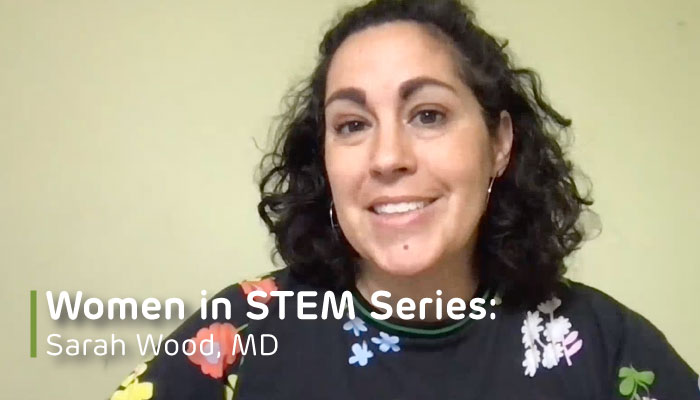
Sarah Wood, MD
Sarah Wood, MD
Principal Investigator, Clinical Futures
"My advice to women in STEM is to always consider the road less taken. When we think about our scientific questions, out-of-the-box thinking can go a long way to furthering discovery and innovation. Considering the road less taken will also open incredible doors for you, not just in your science, but in your life outside the lab as well."
Watch Dr. Wood's full video.
Looking for more role models for women in STEM? Check out our 2023 gallery.